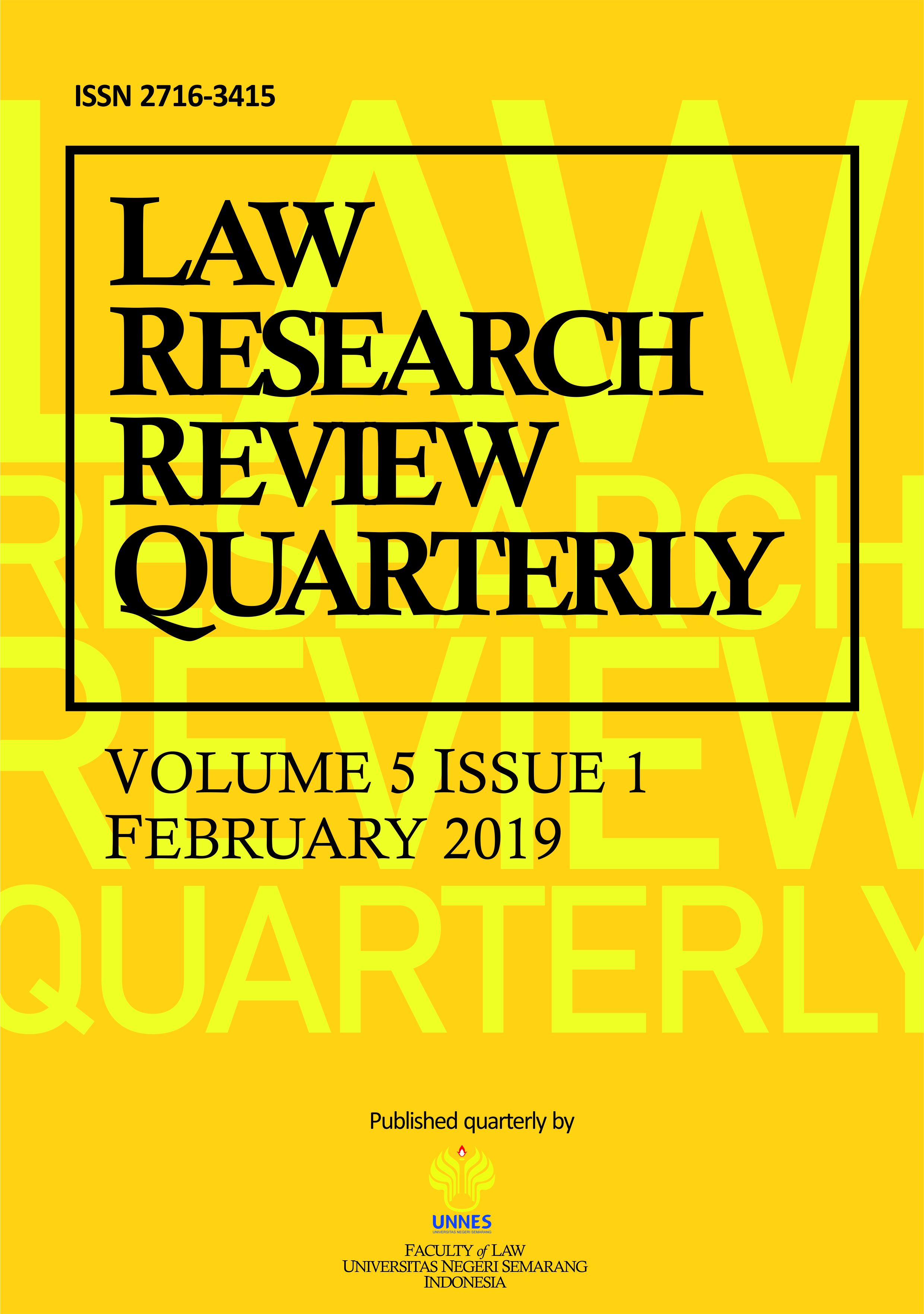The Principles of Good Government in Suppressing Corruption
Main Article Content
Abstract
This paper discusses the application of The Principles Of Good Government, or what we often know with the General Principles of Good Governance (AUPB) in the implementation of government policies, needs to be improved. As a form of filter that is able to filter out any government administration so that it can be free from the snare of corruption. Public officials or implementers must be emphasized in understanding in depth the principles contained in the AUPB to be applied in providing services to the public / community. There are at least 8 (eight) principles attached to the AUPB based on the Government Administration Law, among others: the principle of legal certainty, the principle of expediency, the principle of impartiality, the principle of accuracy, the principle of not abusing authority, the principle of openness, the principle of public interest and the principle of good service.
Article Details
All writings published in this journal are personal views of the authors and do not represent the views of this journal and the author's affiliated institutions. Author(s) are retain the copyrights of the Article. However, before publishing, it is required to obtain written confirmation from Author(s) in order to ensure the originality (Author Statement of Originality). The statement is to be signed by at least one of the authors who have obtained the assent of the co-author(s) where applicable.This work licensed under a Creative Commons Attribution-ShareAlike 4.0 International (CC BY-SA 4.0)
References
Philipus M. Hadjon. (2008). Pengantar Hukum Administrasi Indonesia. Gajah Mada University Press: Yogyakarta.
Sudardi. (2004). Konsep dan Materi Dari Segi Hukum Tata Negara Untuk Naskah Akademik RUU tentang Administrasi Pemerintahan. Semiloka I kajian Reformasi Hukum Administrasi Pemerintahan. Kementrian PAN. 27-28 April 2004.
JURNAL
Rifyal Ka’bah. (2007). Korupsi di Indonesia, Jurnal Hukum dan Pembangunan Tahun Ke-37 Volume 1 Nomor 1, Januari-Maret 2007, hlm. 79
M. Darin Arif Mu’allifin. (2015). Problematika Dan Pemberantasan Korupsi Di Indonesia, AHKAM, Volume 3, Nomor 2, November 2015: 311-325
Hikmatus Syuraida. (2015). Perkembangan Pemberantasan Korupsi Di Indonesia Era Orde Lama Hingga Era Reformasi, AVATARA, e-Journal Pendidikan Sejarah Volume 3, No. 2, Juli 2015,hal.236.
Natalia Melgar,Ma´ximo Rossi and Tom W.Smith. (2010). The Perception Of Corruption, International Journal of Public Opinion Research Vol. 22 No. 1 Tahun 2010.
Ridwan. (2014). Upaya Pencegahan Tindak Pidana Korupsi Melalui Peran Serta Masyarakat, Kanun Jurnal Ilmu Hukum No. 64, Th. XVI (Desember, 2014), hlm.386.
Sri Suwitri. (2007). Pemberantasan Korupsi Di Indonesia : Sebuah Upaya Reformasi Birokrasi, DIALOG Jurnal Ilmu Administrasi Dan Kebijakan Publik, Vol. 4, No. 1, Januari 2007, hlm.24
Bambang Waluyo. (2014). Optimalisasi Pemberantasan Korupsi Di Indonesia, Jurnal Yuridis Vol. 1 No. 2, Desember 2014, hlm. 175-176
Muhamad Azhar. (2015). Relevansi Asas-Asas Umum Pemerintahan Yang Baik Dalam Sistem Penyelenggaraan Administrasi Negara, NOTARIUS â–ª Edisi 08 Nomor 2 September (2015), hlm.181-182
DATA ELEKTRONIK
https://antikorupsi.org/id/news/kpk-dan-pencegahan-korupsi , di akses tanggal 2 April 2019
https://www.uii.ac.id/masyarakat-bersatu-melawan-korupsi/, di akses tanggal 2 April 2019
http://indonesiabaik.id/infografis/masyarakat-dapat-ikut-berperan-memberantas-korupsi, di akses tanggal 2 April 2019
https://cegahkorupsi.wg.ugm.ac.id/index.php/fakta-korupsi , di akses tanggal 2 April 2019
http://pemerintah.net/asas-asas-umum-pemerintahan-yang-baik-aupb/ , diakses pada tanggal 2 April 2019
https://acch.kpk.go.id/id/jejak-pemberantasan/uu-28-tahun-1999-enyelenggaraan-negara-bersih-dari-kkn , di akses tanggal 2 April 2019
https://www.bphn.go.id/data/documents/pemerintahan_yang_baik.pdf , di akses pada tanggal 2 April 2019
